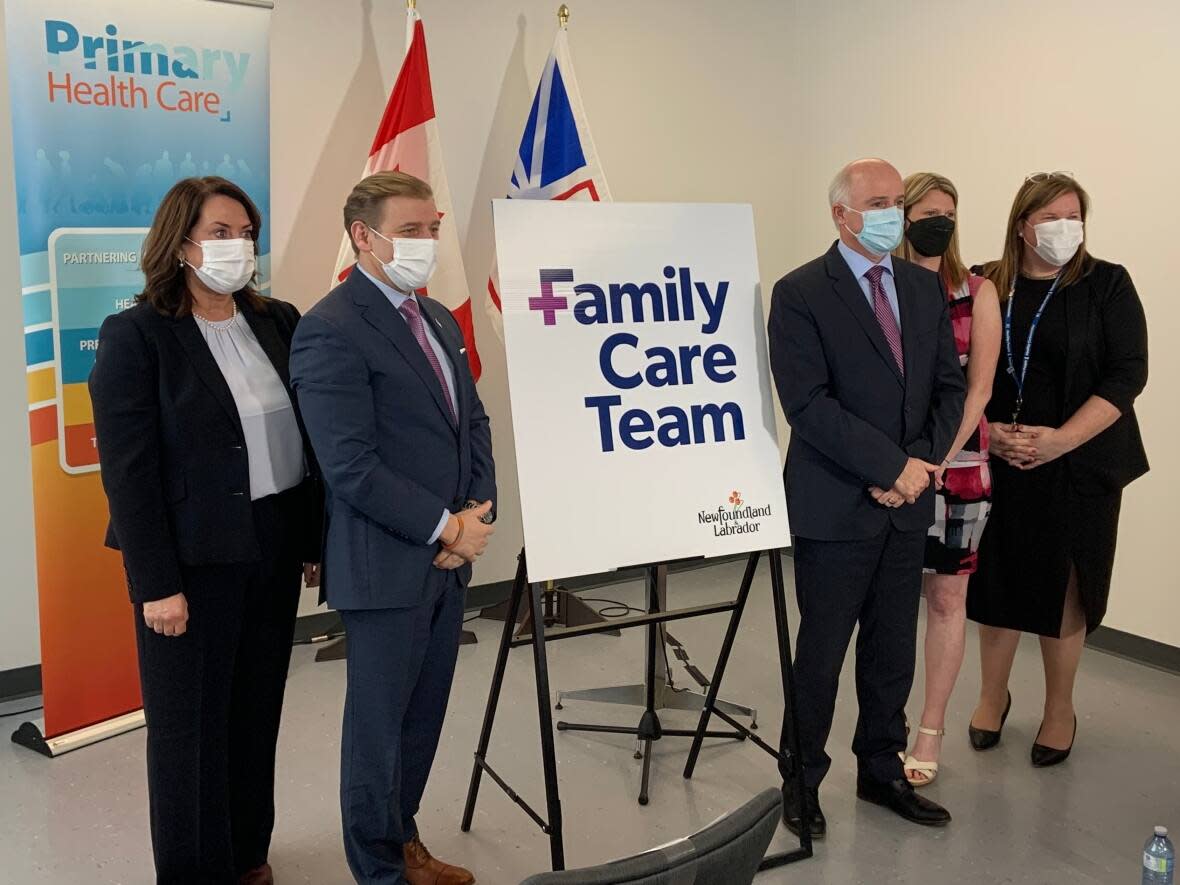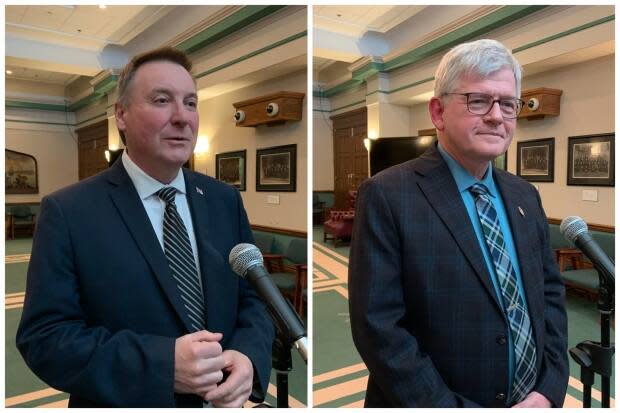As thousands go without primary care, Furey announces 10 more team-based clinics


The provincial government plans to expand team-based primary care in Newfoundland and Labrador, as thousands of residents continue to go without a family doctor.
Premier Andrew Furey says the provincial government plans to create 10 more family care teams — also known as collaborative care clinics — over the next two years.
"This is a model that will help address the disconnect between patient and primary care," Furey said during a news conference.
In addition to a physician, family care teams include other health care workers such as nurse practitioners, physiotherapists, allied health professionals and others.
The new family care teams are in addition to eight teams either getting set up or already operating, said Furey. More than 12,000 people have received care at those clinics, according to the Department of Health.
Furey said more than 80,000 people are expected to receive care in the new clinics.
According to the NLMA, the association that speaks for doctors in Newfoundland and Labrador, more than 136,000 people across the province don't have a family doctor. The provincial government claims that number is far lower — less than 50,000.
"Look, I'm not going to debate the validity or the variance within the numbers," Furey said when asked about that discrepancy. "Our goal is to ensure that every Newfoundlander and Labradorian has access to primary care."
He pointed to the Health Accord N.L., which recommended a shift toward collaborative care, as part of the impetus for the shift to team-based care.
"Team-based care is the best for patients and for providers alike, and we know working in teams is better for everybody. It's an essential feature of an effective and sustainable health-care system," he said.
35 teams in 5 years
The new clinics will be located in Labrador West, Port aux Basques, Grand Falls-Windsor, Clarenville, Deer Lake-White Bay, Kittiwake, Gander, Bonavista, Conception Bay North and the St. John's area. Furey said those locations were based on multiple factors, including availability of health care workers and resources.
According to Health Department officials, the provincial government has spent $14 million on the existing clinics, and expects to spend $21.2 million from the upcoming budget to open the new clinics. Furey said the provincial government plans to add even more family care teams in the next five years.
"We think we can capture the whole province with 35," he said.
Furey said the provincial government is in discussions with the Newfoundland and Labrador Medical Association about changing the current fee-for-service model.
The announcement — the latest in a slew of pre-budget promises — did not include details about exact locations for the clinics or opening dates.
Last week, the provincial government announced new incentives to attract physicians to Bonavista, after residents rallied against shuttered services and emergency room closures.
Unintended consquences?
While speaking with reporters, PC interim leader David Brazil said he wants to see evidence that the provincial government will be able to staff the new clinics.
"If you're just moving them from one area to another, you're not benefiting anybody here when it comes to access to health care," he said.

Brazil said the provincial government's health care plan has been reactive, rather than proactive.
"The Health Accord has an outlined process. We're not seeing the implementation in the process."
Jim Dinn, NDP interim leader, said he fears the clinics could have unintended consequences for some patients.
"What are they going to do to make sure this doesn't impact already-established family practices and the patients who depend on them?"
Furey said family physicians won't be forced to join family care teams — but they will have the option to, meaning some patients who do have a family doctor could see changes in their primary care.


